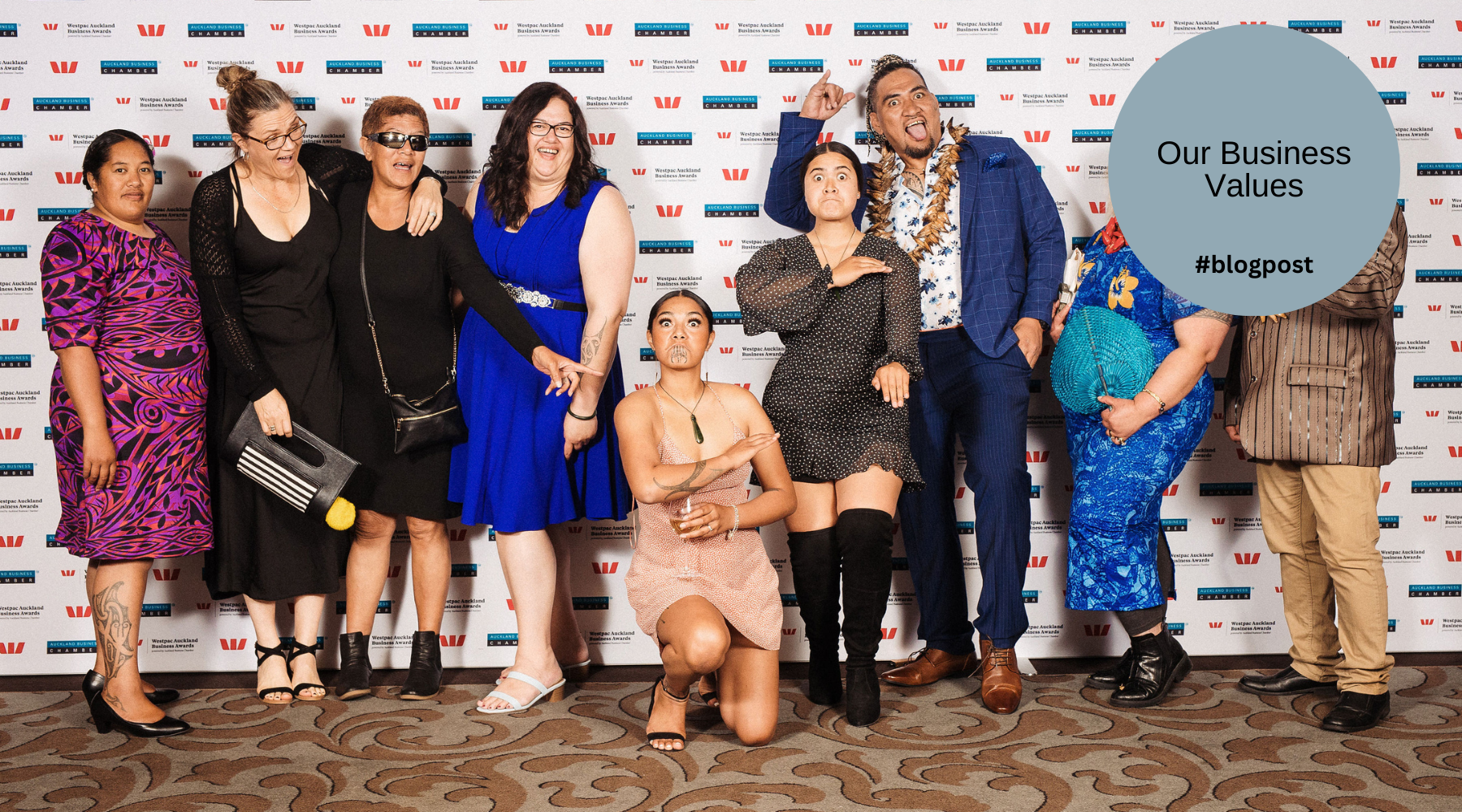It's easy for us all to take our foundational values as a pakihi for granted or simply forget about them altogether until we need them most - when we're faced with difficult times or challenging situations where our values really come into play. This is why it's important for every business owner or manager to regularly revisit their values and revisit them often!
Our top 4 values are;
1. Celebrate our language & culture
We started our business with the aim of creating resources that celebrated our language and culture. However, as second language learners ourselves, we had the challenge of ensuring the accuracy of the language and information we share in our resources is tika, and is approached from our worldview - that we never take English resources and just 'translate over'. This takes effort, with in all honesty, a lot of minefields to navigate. We have made mistakes along the way, but each time we were able to korero with our trusted advisors and make necessary changes – or not in some cases – but then communicating clearly why we would use the particular kupu, phrase or designs in our rauemi.
We initially started doing bilingual Te Reo Māori and English resources only, and then we kept being asked to create Te Reo Māori options only. We were initially hesitant to do this as we felt others were better placed to, but then going back to our values, we had to step out of our own comfort zone and make the effort. We work closely with our translators and advisors and hold many hui during product design phases to ensure we were not only using the right kupu, but everything is in the right context for the product being created and the end user.
When we expanded to include Samoan resources, there were different challenges. While my husband is born and raised in Samoa, a fluent speaker, we still attained outside support from family, friends and translators both in NZ and Samoa to ensure the language used and information shared was appropriate for our products and customers. Again, many things could not just ‘translate across’ from our English or Māori resources - every resource we create involves a lot of talanoa, discussion, checking and re-checking to ensure the Samoan language resources are the best they can be.
To date, we are proud of the resources we have created and the processes we follow to stay tika (true) to our pakihi values. Since launching our Samoan range in 2021 we often get asked to create resources in other Pacific languages. We have respectfully declined these requests as there would be many people and businesses more suited to do this. I have a standing offer to other small businesses who want to create resources in their own language – I am happy to help and share what I know, so that you are able to create resources in your own language similar to what we have done.
2. Give back, the environment and people are not just to be taken from
We believe in the concept of koha, the inherent value of reciprocity, it is intertwined to Manaakitanga and Kaitiakitanga. We have given back in different ways to a multitude of activities, groups, causes, events etc over the years and are fortunate to be in a position to do so as a small business. We don’t make a big fuss of our koha, our donations and contributions – as it is not in our cultural practices to do so. Our challenge has been aligning business and cultural practices. Our business advisors tell us to ‘promote and optimise’ our give back actions - to use our practices as a marketing tool. This does not sit well with us, and so we choose not to.
We may change our stance on this over time, as often the requests outnumber what we can support, and also, we do know that some customers like to know how businesses give back to their communities. But, until we can find a way to share that information, that values koha and the practice of giving back without it being a marketing gimmick – then we will do so quietly with no fanfare.
3. Tiaki te Taiao
Our commitment to te Taiao is ongoing, and each year we learn and implement new and better ways of business practice to reduce our impact on te Taiao. Firstly, we aim to make quality products that people will keep, reducing what ends up in landfill. We then work with our printers to optimise our printing finishing and sizing, ensuring that our products are only made by FSC certified printers and use vegetable or soy-based inks. We belong to the shopify planet programme and pay per order to remove our carbon emissions. We also create digital options of our products and utilise print on demand marketplaces overseas so there is lessened shipping emissions for international orders. We repurpose all of our stock packaging and aim to re-use and use only recyclable and compostable packaging and supplies in fulfilling orders.
While proud of what we are currently doing, we know we can always do more - so the challenge is keeping abreast of best practice and ways we can do things better in our small business as we grow and scale. And then similarly, making sure we partner with other suppliers who share the same values.
4. Enable Access to Quality
We ensure our products are made to the best quality we can attain and is appropriate to our target market that we are producing the resources for. Sometimes, these are simple decisions – such as ensuring our children’s resources are all bright, colourful, CMYK prints that our tamariki will enjoy, rather then the lower cost black and white options. Sometimes they are harder decisions – should we be sharing this mātauranga (knowledge)? Who will benefit from using the resources we create? Are we helping or hindering language revitilsation by producing bilingual resources – should we only produce resources in our languages with no English translations?
As a foundation value, we knew the personal, social, and cultural value of creating our resources – the pride, connection and learnings that could come from our creations. So, we wanted to ensure these were made available for those who did not have the same connections to language and culture and wanting to do so, in small, daily, practical ways – such as a using a bilingual planner. But we are challenged often, by many who disagree with our stance and each new challenge we receive, we must step back, check in with our advisors and make sure that each product still aligns with our value of celebrating and sharing our language and culture, and making it accessible within quality resources.
Last words
I would encourage all new businesses to determine the foundation values of their businesses and find ways to ensure they are incorporated into your decision making daily, reviewed, and adjusted as needed. They will be your light in the darkness, and the pathway for your next steps. They may even be something that gets learnt along the journey.


2 comments
Kathy' Rogers
Do you have Gardening calender by moon and tides
Janine Maihi Harrison
Do you have the wall planner for the offices
Nga mihi Janine